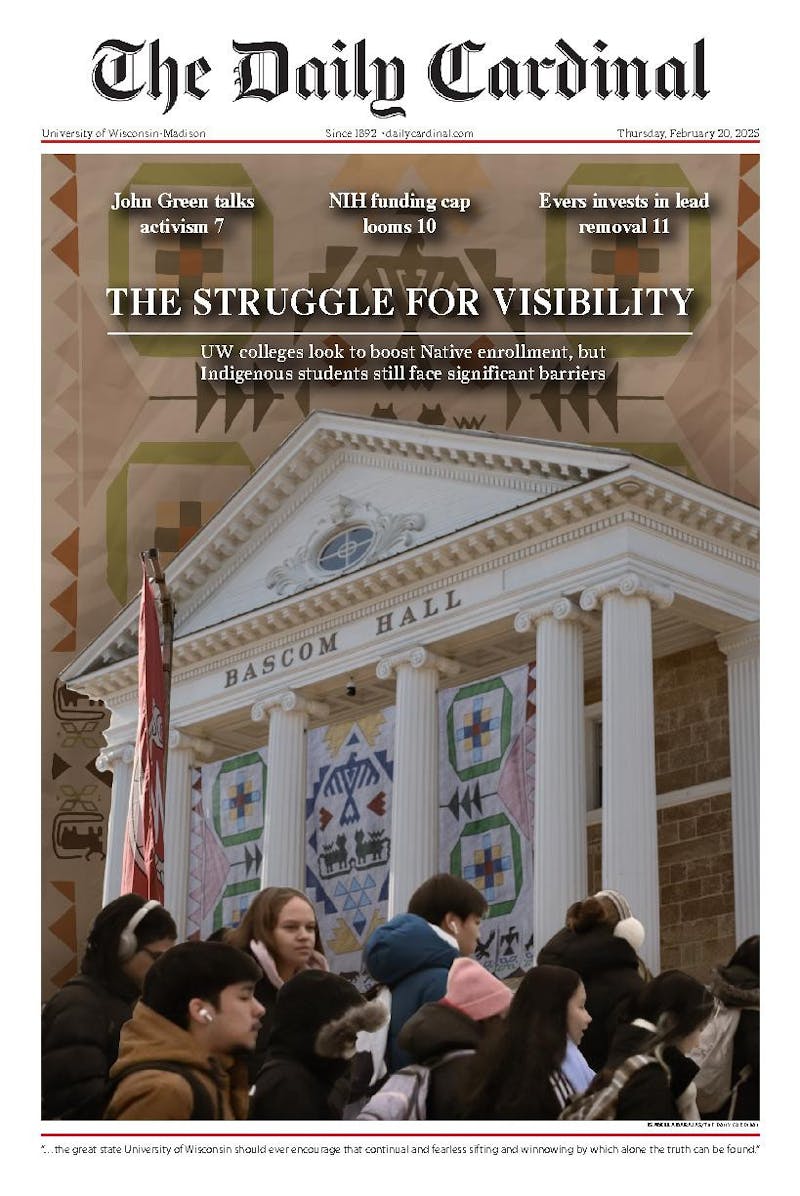If UW-Madison student Steven Sobeck asked every clinic in Madison to treat and refill his prescriptions for hyperthyroidism, their response would be unanimous: ""Go home.""
Sobeck's condition over-stimulates his metabolism, accelerates his nervous system and can cause complications from heart palpitations and anxiety to congestive heart failure and even osteoporosis if not treated a few times each year.
Unfortunately, Sobeck is one of the many UW students with insurance through his parents' Health Maintenance Organization—which offers coverage within a limited network of health-care providers. Although most HMOs cover emergency care anywhere, other treatments are not reimbursed if the insured is ""out-of-network.""
Most frustrating of all, Sobeck said his HMO would cover Madison treatments if his nearest in-network provider, Lake Mills Urgent Care Clinic, was more than 30 miles away. It's 28 miles, and Sobeck's HMO isn't budging.
""I've tried to get this changed by talking with the insurance provider directly, but they remain unsympathetic and refuse to grant any exceptions,"" Sobeck said in an e-mail, though he did not reveal his insurer.
Instead, when Sobeck needs his refill—usually two-to-four times per year—the Green Bay native works around holiday breaks when he can hitch rides home from friends and family.
University Health Services Executive Director Sarah Van Orman said she sees similar HMO frustrations almost every day.
""HMOs assume somebody has a single home. The challenge with students is … the place they need to get care in the school year is different from where they might need to get care over break.""
Although HMOs cover emergency care, Van Orman said the old restrictions renew once patients leave the ER.
""Somebody may have an emergency condition, like a pretty serious broken bone, where they end up having to go to the emergency room … but then they need a follow-up appointment with an orthopedic surgeon or physical therapy, and even though the emergency was covered, the follow-up care would not be covered in Madison.""
Van Orman said UHS covers most basic procedures for students through segregated fee payments, but specialty care, physical therapy and ""complex diagnostic testing such as catscans, MRIs and endoscopy"" are not covered.
UW-Madison student Julie-Anne Spatz discovered her HMO's limitations too late when she tore her ACL during a previous school year.
""My health-care coverage would not pay for me to receive an MRI in Wisconsin, and I had to pay for a flight home to get one,"" the Maryland native said in an e-mail.
Van Orman said HMOs often render out-of-network doctors helpless.
""Normally I can order [specialty treatments] and get students in that day and it would be a lot easier and actually cheaper for everybody, but because their plan wouldn't cover it because it's not considered an emergency, I end up having to send them to the emergency room to see someone,"" Van Orman said. ""On a society level, it's also a waste of ER resources.""
Phil Dougherty, spokesperson for the Wisconsin Association of Health Plans—an HMO trade organization, said HMOs have worked hard in recent years to make sure parents understand their policy restrictions and limitations when they purchase insurance, but not everyone has the luxury of choice.
While large employers can offer more plans with greater flexibility, employers are more limited when they have smaller employee pools to offer insurers, according to Jim Guidry, spokesman for Wisconsin's Office of the Commissioner of Insurance.
According to Van Orman, students with HMOs sometimes buy separate insurance to cover Madison, adding additional costs that many avoid unless they require chronic care.
State Sen. Kathleen Vinehout, D-Alma, said she'd like to see a state or federal insurance exchange so all Wisconsin residents could peruse ""the whole menu"" of about 80 options that she is offered as a state senator.
""If my kid is at River Falls and has a chronic illness, I'm going to look for a plan that covers him in River Falls, and I've got that flexibility.""
Vinehout supports a public option to improve flexibility and affordability for low-income individuals without access to employer insurance, but said any exchange would beat the current system by shifting choice from the employer to the employee.
""If you pick a more expensive plan or a plan that lets you go to Cleveland Clinic when you live in Milwaukee, then you're going to have to pay a little more, but in some cases, if the kid has a really weird disease and the only person in the country that can get care from is at Cleveland Clinic, it's worth paying,"" she said.
In the meantime, Sobeck said UHS could do a better job of reaching out to raise health insurance awareness among the student body.
""Once you have [insurance], you don't have to worry about it because someone else is paying the bill, right? Student don't realize that there is a whole array of ""fine print"" that places restrictions on where care can be received, what type of care can be received, and what costs you're responsible for.""
Van Orman said she encourages all students to learn more about their insurance before they need to use it.





